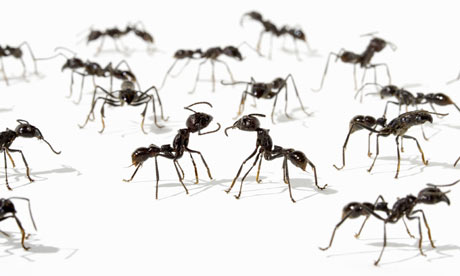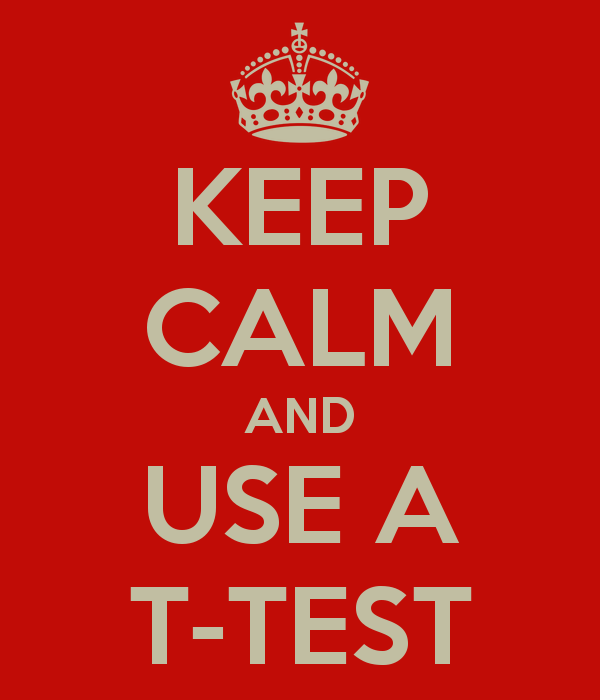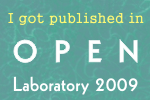Terrible advice from a great scientist
I am not inclined to write polemic posts. I generally like to leave that to others, while I take the admittedly easier route of waxing positive over various bits of cool science I find or hear about, and yes, occasionally do myself.
But WSJ editorial from E.O. Wilson has irked me so much, I have decided to go for it. The upset I felt when reading this was on several levels: as a teacher, and a scientist, and as a person concerned for the future of science, and science literacy. In this editorial, Wilson promotes a type of scientific illiteracy that is dangerous if taken to heart by aspiring scientists.
In essence, Wilson draws from his personal experience as a successful scientist who is not only semi-illiterate in math, but proud of it. He claims that, if he succeeded as a math illiterate, so can other scientists, except in “a few disciplines, such as particle physics, astrophysics and information theory.” (All quotes are from said article, unless noted otherwise.) He claims that “Far more important throughout the rest of science is the ability to form concepts, during which the researcher conjures images and processes by intuition.” He continues to state that: ” The annals of theoretical biology are clogged with mathematical models that either can be safely ignored or, when tested, fail. Possibly no more than 10% have any lasting value.”
OK, let’s take a closer look. First, Wilson’s claim from personal experience that “advanced math” is unnecessary. That he only got to taking calculus when he was tenured faculty at Harvard at the age if 32, and was never more than a C student. He became successful anyway. Wilson is a successful outlier: a genius that did the right things and was in the right place and time to get where he got, the lack of some basic skills otherwise mostly needed not hindering him.
This is the same as other successful extreme outliers: Bill Gates who became a billionaire but who never completed college. Gates is held as a shining example for those who argue that you don’t need college, all you need is hard work and ingenuity. (If everyone was ingenious, then it won’t be a rare and advantageous trait anymore, would it? And if everyone as a billionaire, that would mean we are in the midst of a Weimar Republic hyper-inflation.) This rationale has led to thousands of engineering school drop-outs to form their own startups in the late 1990’s, and we know how that has ended. For every one Bill Gates, there are thousands of college dropouts that went broke, and were unemployable due to a lack of formal skills. On the other hands, there are the thousands who completed their degree, gained successful work experience, and some may have formed their own startups that may or may not have become successful, but who have a formal and comprehensive education to draw upon and make them employable.
The same principle applies in Wilson’s case: for every science professor that is a self-professed math illiterate and who made tenure in Harvard at the age of 32, there are thousands of postdocs who are vying for an assistant professorship in any university. And those postdocs need to know some statistics if they are to be able to design and interpret any kind of basic experiment. This is a basic tenet of any experimental science and any advice to the contrary is terrible. They need to know calculus if those experiments have a time course. And they need to know basic programming if they are to analyze large amounts of data. Universities can afford to be selective. The postdoc who will usually get the job will be the one offering the most promise. And the most promise is offered by displaying a broad range of skills (among other things, of course). Furthermore, even basic skills are required to graduate with a viable Ph.D. It is a poor degree in biology whose owner does now know how to test for statistical significance, that most basic of requirements for designing and conducting experiments. Furthermore, biology today has changed in many ways since Wilson was tenured in Harvard. It is mostly a data rich science. “Intuition” cannot be used when gigabytes of data are involved.
The other problem I have with Wilson’s take on math, is his categorization of math as an auxiliary discipline which only serves to formalize creative ideas, but which is not part of the creative process. “Ideas.. emerge most readily when some part of the world is studied for its own sake. They follow from thorough, well-organized knowledge of all that is known or can be imagined of real entities and processes within that fragment of existence.” Wilson claims that knowledge of math by itself cannot help generate such ideas, but can only help to formalize them once the nebulous intuition generates them. He draws upon Darwin as the ultimate biologist with no math background who “made it”. Darwin is Wilson’s Bill Gates, his outlier from which he draws general conclusions. However, even Darwin himself wrote:
I have deeply regretted that I did not proceed far enough at least to understand something of the great leading principles of mathematics; for men thus endowed seem to have an extra sense.
It is this extra sense that makes math such a powerful asset to biological thinking. Indeed “thorough, well-organized knowledge of all that is known or can be imagined of real entities and processes within that fragment of existence.” requires math to chart and define these “processes” as processes in the first place. That “well-organized knowledge” can become well-organized by better understanding the fundamental discipline of knowledge organization: statistics. In fact, Wilson uses an intuition of math, unwittingly, to have these “processes” emerge. He then finds someone for the “follow-up steps” which “usually require mathematical and statistical methods to move the analysis forward.” Imagine what would be possible if Wilson was possessed of that “extra sense” that Darwin has recognized as promoting the creative process, rather than treating math as a technical followup. The ability to come up with models not relying on “dreaming” alone, but drawing upon the “extra sense” that Wilson unfortunately and mistakenly spurns as a mere adjunct discipline. Actually, there is no need to imagine such a scenario. As there are so many discoveries made in biology that drew upon both math and empirical biological knowledge. Ecology, genetics, population biology, neurobiology, biochemistry and, of course, molecular biology.
There is, of course, the remote possibility that Wilson is trolling for the sake of promoting quantitative thinking which is lacking in too many corners in science and especially in biology. That Wilson has recognized the lack of math in certain disciplines is hurting and holding back those disciplines, and has decided that the best way to promote young biologists to learn math and adopt it to their research and in their teaching is by provoking a tribal war between the mathematically literate the those who are not. Sadly, I doubt that this is the case. More likely, his self-professed math illiteracy serves the purpose of not recognizing the generalization from an outlier cannot serve as a viable model, or even an argument to support his position.
Finally, for a far more comprehensive post than mine, which links to many other responses including those supportive of Wilson, I suggest you read E.O. Wilson vs. Math at Dynamic Ecology.





















I think you are attacking a straw man. E. O. Wilson said that ‘depending what level of math skills you acquire, there is an appropriate scientific field for you’. That should be the right attitude. We have seen that in physics for many years, where those who were extraordinary in mathematics, got interested in theoretical physics, but many others with less mathematical skills did very well in experimental physics.
http://www.homolog.us/blogs/2013/04/10/do-good-scientists-need-to-be-expert-mathematicians/
[…] [wprebay kw="+ avidin biotin" num="0" ebcat="-1"] [wprebay kw="+ avidin biotin" num="1" ebcat="-1"] avidin-biotin Interactions: Methods and Applications (Methods in Molecular Biology) Rel = This book…cally the application of extremely powerful interaction between the protein avidin or its homologues […]
@ homolog.us:
And here I thought the people who could do clever things with their hands and not hurt themselves or others became the experimentalists, and the leftovers became the theoreticians!
you make the same basic mistake as Mr Wilson..drastic over-simplification does not extrapolate well when expand to the whole of the problem
Math becomes a barrier to scientifically inclined citizens. How is that supposed to draw in new scientists, if their parents can’t even figure out what a researcher is trying to discuss, let alone formulate.
An average published paper is almost exclusively for fellow scientists in a very specific niche now.
Almost always arguing about very specific claims, that are in dispute inside that niche.
Solar wind astrophysics is a superb example of that now, with flurries of papers, on arcane details, without any true basic understanding of how it really works.
The same can be said of almost ALL science now. By just making students repeat the same theories over and over, and doing the math to support those models, ingrains these fabrications onto every future student.
I have to say that not a SINGLE fact i learned in high school in any scientific field (bio excepted) appears to be true – i.e. a correct basic law. Have been studying asteroid mining the last 4 years, and without any access to journal paywalls), and i can tell you that not a single, physical explanation supports disc accreation theory in any but a massively contorted model.
While i havn’t bothered to learn to do orbital calculations, it isn’t really required for anything other than mission design, or arguing about those contorted explanations i whined about earlier.
True science shouldn’t require phantasmagorical calc to explain it.
And statistics. Thats what computers are for. Methodology and sampling consistently been much more important, except in meta-analysis, which has it’s own weaknesses.
Make it simple enough for me to explain to a kid, please…..
“It is a poor degree in biology whose owner does now know how to test for statistical significance”
On “less to unlearn” and other grounds I’d contend that in such circumstances ignorance may well be bliss.
“It is a major scandal that orthodox methods continue to be taught at all to young statisticians, economists, biologists, and medical researchers; this has done irreparable damage in these fields for decades.” –E.T. Jaynes.
Biologists and other scientists ought to be taught how to do inference, not how to (mis-)apply and (mis-)interpret the cookbook methods of orthodox pseudo-inference. 🙂
Do you not realize it’s double-plus ungood to disagree with an academic, in this best of all possible worlds?
Just wait until he gets you in his class, where he can demand conformity of thought.
Then you’ll repent your critical thinking.
The most important thing I learned in grad school was that there are lots of different ways to be a good scientist. My Stanford professors demonstrated very clearly that you don’t need to be good at everything to be plenty good enough.
That’s true of math as much as it is of interpersonal skills and benchwork. Ideally we’d all be excellent at everything, but if we start telling potential scientists to give up because they’re not perfect we’ll miss out on a lot of good colleagues.
@Rosie
“but if we start telling potential scientists to give up because they’re not perfect we’ll miss out on a lot of good colleagues.”
That’s not what I am saying (and Wilson is not arguing for or against any kind of perfection either). What I am arguing against is (1) the dismissal of math as a mere auxiliary, rather than a skill that can enable you to form concepts in the first place. (2) his misconception of math in biology as mere “theory”.
1) What’s wrong with theory? It is the most basic of basic research.
2) Wilson says that 10% of theoretical papers are “useful”. Not sure what that means, and how usefulness and this % figure is measured. But the same statement can be applied all over science. Few papers are “useful” (highly cited?) It is a tenet of basic research, theoretical or not, that many different avenues are explored, as we cannot know what becomes “useful”.
3) A large part (most?) of computational / quantitative biology today is used to plan, execute and interpret experiments. It is not “theory”. Unfortunately, we are able to perform complex analyses without really understanding them, thanks to deceptively easy-to-use software. This can, and in my experience does, lead to many erroneous conclusions in experimental analysis. Some basic quantitative literacy (not “perfection” in any sense) can help remove many embarrassing mistakes that come across my desk in the form of misinterpretation of results, or the poor planning of the experiment in the first place.
Morganism, you do realize that nothing in science is actually true. I also think you’re confusing facts and theory. Facts are usually observations which we invariably assume to be correct, theories are a means to organize those facts into models. You can never be certain that a fact is correct and all models are wrong. That’s the nature of science, it is a weakness and a strength. Those looking for certainty, possibly yourself, will be greatly disappointed in science.
One thing that Wilson didn’t really mention was that mathematics is a powerful reasoning tool. Take for example the complex networks we find inside living cells. There is no way one can intuitively think through such a complex system. People tried and got hopelessly confused, something we’re still living with today. It was only by using mathematics as an objective reasoning tool that some sense of order was brought to the table and many of the intuitive ideas were shown to be logically inconsistent or impossible.
I personally wish I had better math knowledge and skills, and had a chance to go back to school to get them. It would help me more deeply pursue those areas of science and engineering that interest me most.
However, when it comes to explaining anything technical or scientific to people, like the advice given to science authors, I avoid “the math”. Mathematics helps you gain deeper insights into those more loosely defined insights that are the beginning of scientific investigation.
So, it would have been better had Wilson not singled out knowledge of or skill in math as a factor, but had simply said that passion and interest are the starting point for good science and that everyone with those will bring them and other skills to the pursuit of science. The point is to encourage people to be engaged. Trying to define the path or requirements (or non-requirements) is a delusion — who can say where the next great insight will come from next?
Note that Bill Gates knew enough math to solve an unsolved problem (given as a exercise in class!) and write a paper on that topic with a noted CS prof. at Harvard at that time.
Gates, W., Papadimitriou, C. (1979). “Bounds for Sorting by Prefix Reversal”. Discrete Mathematics 27: 47–57.
See also http://en.wikipedia.org/wiki/Pancake_sorting
Applying Bayesian reasoning, it’s not such a remote possibility that this editorial is a troll. WSJ’s selection of guest editorials is certainly not a random sampling of “thought leaders” — they want to drive traffic and readership, first and foremost, which is a huge incentive to publish trolls. It “gets people talking,” and they only need to find one person who’s willing to do it. (The prior could be based on a survey of recent WSJ editorial pages.)
Or perhaps this is a meta-troll: Anyone with basic training in statistics would know not to draw broad conclusions from a single data point.